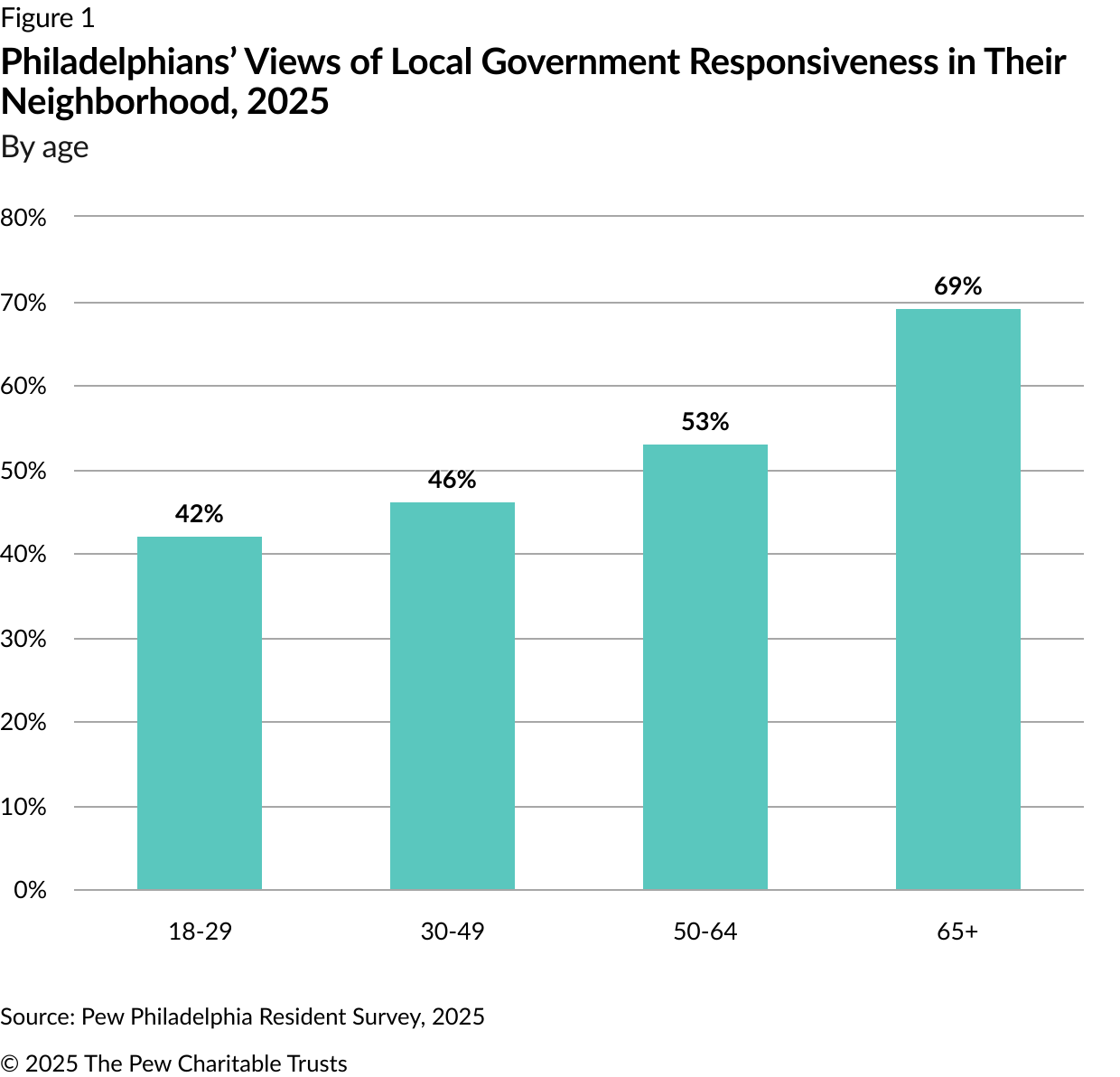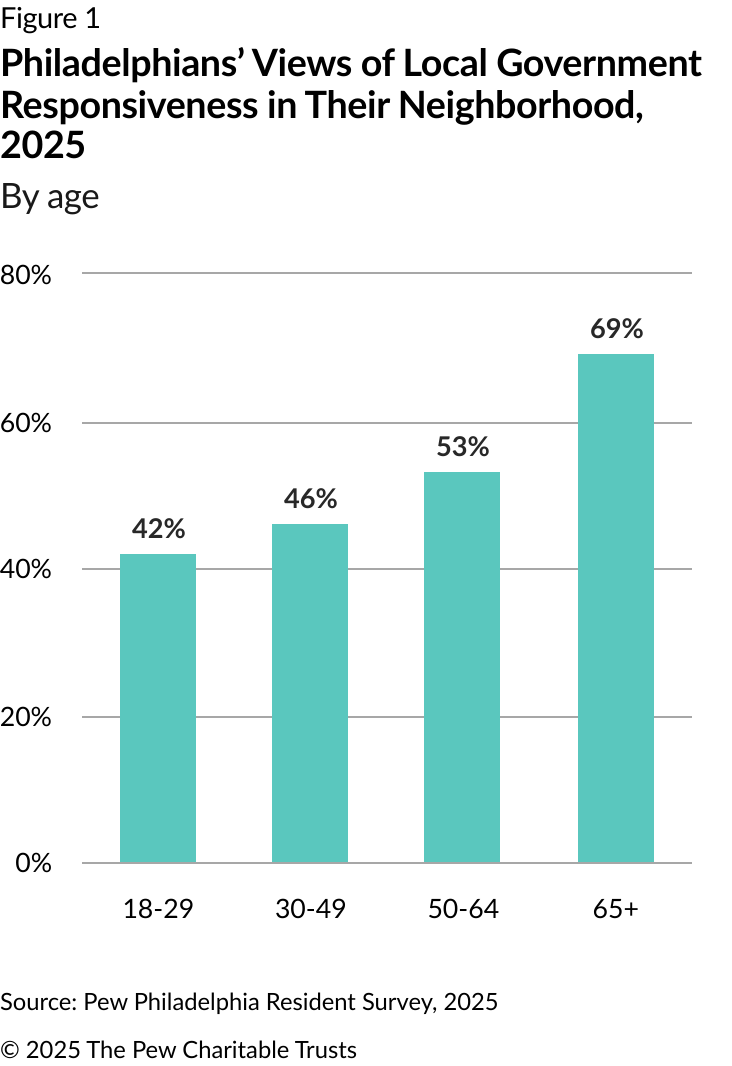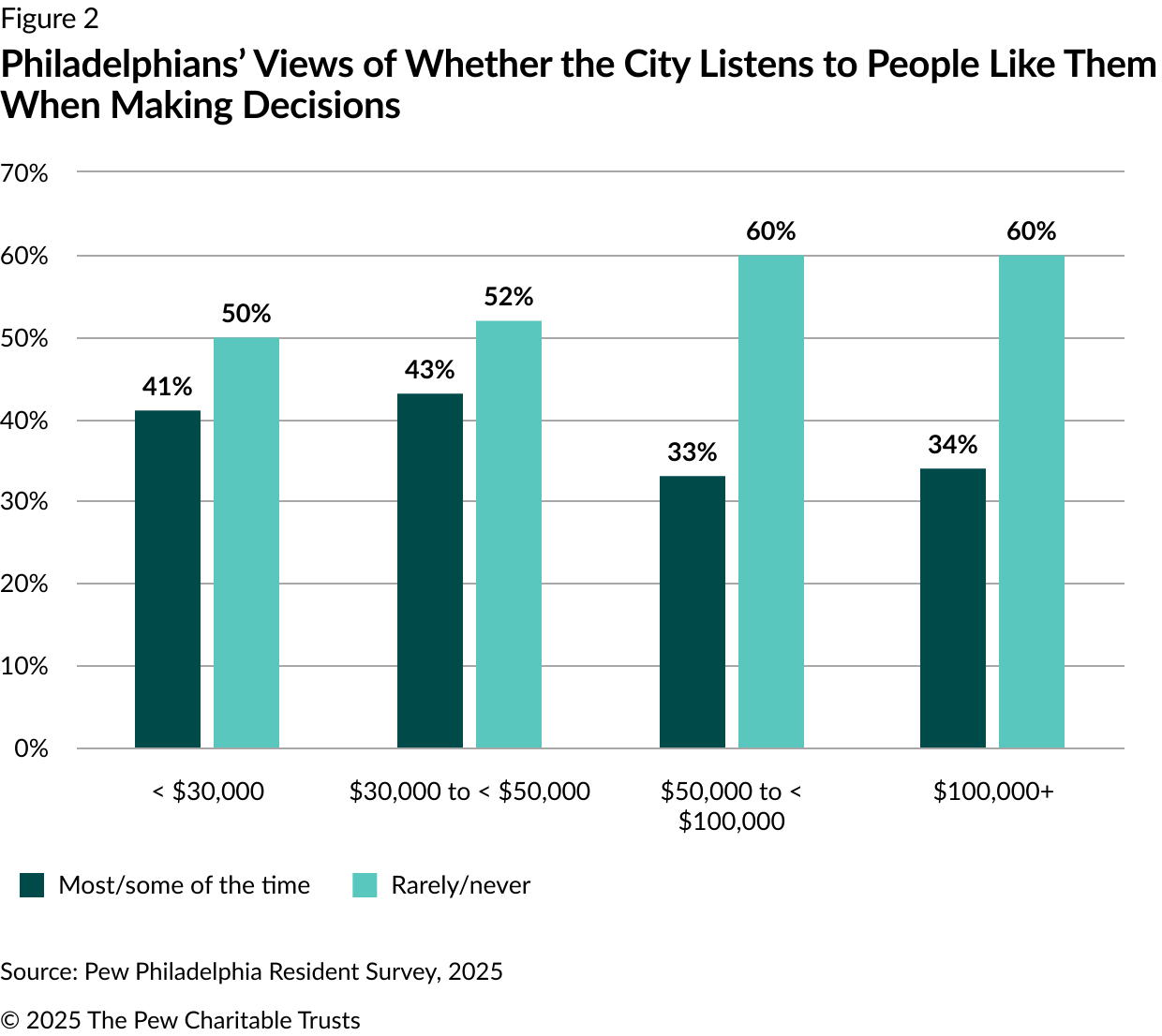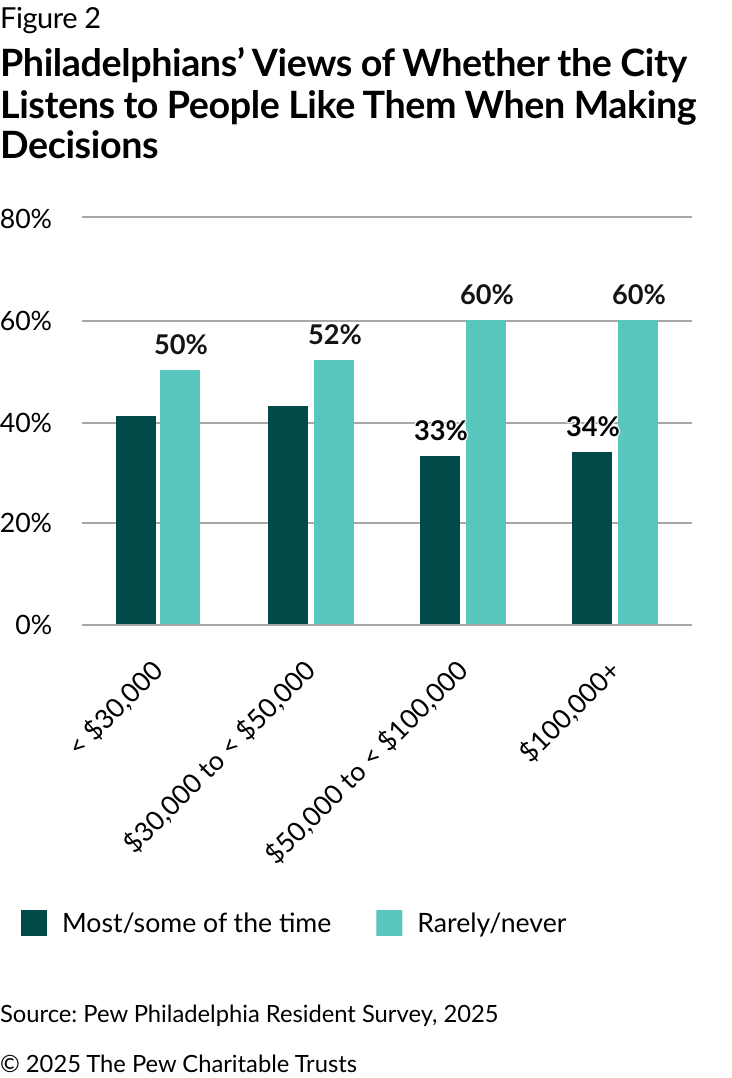Philadelphians Divided on Local Tax Policy: Poll
About half want to prioritize services; the rest favor lower taxes
Editor’s note: The polling toplines were updated July 8, 2025, to correct the margin of error and to include the sample of 111 phone completions of the survey in the list of survey responses.
Philadelphians are split on how local government should spend taxpayer dollars. About half of residents say the city should prioritize services, while the other half would prefer reduced taxes. However, Philadelphians broadly perceive that they get less than they pay for with their tax dollars.
The most recent Pew Philadelphia Resident Survey, conducted Jan. 2 through March 10, covers a range of issues, including local government responsiveness and taxation. Overall, Philadelphians feel that city government is somewhat responsive to their needs, and they have mixed views on taxation. But as with previous years, there isn’t an obvious direction where Philadelphians would like their local tax policy to go.
Government
About half of residents would prefer more government services and higher taxes, whereas the other half prefer fewer services and lower taxes. These findings have remained stable in the years that Pew has asked this question of residents. (See Table 1.)
Table 1
Philadelphians’ Preferences for Higher or Lower Taxes, 2019, 2022, and 2025
| 2019 | 2022 | 2025 | |
|---|---|---|---|
| More government services and higher taxes | 46% | 45% | 47% |
| Fewer government services and lower taxes | 51% | 53% | 52% |
Source: Pew Philadelphia Resident Survey, 2019, 2022, and 2025
In addition, about half of Philadelphians agree that reducing business taxes will help create jobs, whereas the other half believe that reducing city business taxes will help companies increase their profits. However, the breakdown has shifted since the pandemic. (See Table 2.) Philadelphians who were most supportive of reducing city business taxes have a high school diploma or less schooling (54%), live in North Philadelphia (54%), and are over the age of 65 (53%). When looking at income, around half of Philadelphians earning less than $50,000 were more supportive of reducing business taxes, compared with 39% of residents with incomes of $50,000 or more.
Table 2
Philadelphians’ Views on Business Taxes, 2019, 2022, and 2025
| 2019 | 2022 | 2025 | |
|---|---|---|---|
| Reducing city tax on businesses will help create jobs | 56% | 44% | 46% |
| Reducing city business taxes will only help businesses make more profit | 41% | 55% | 53% |
Source: Pew Philadelphia Resident Survey, 2019, 2022, and 2025
Philadelphians’ views regarding city spending priorities have changed. This year, more Philadelphians say that the city should prioritize economic growth (56%) over directly helping low-income residents (43%). Around half of residents earning less than $50,000 supported prioritizing economic growth, as did more than 60% of those earning $50,000 or more. This view has evolved from a direct split in 2022, although some differences from previous years remain, including the fact that more men (63%) than women (51%) prefer prioritizing economic growth.
And citywide, only 8% of residents say they receive more than they pay for in taxes. Nearly two-thirds believe they receive less than they pay for, and 28% think what they receive for their tax dollars is about right. These views were widely shared across demographic groups.
Government responsiveness
Philadelphians were also asked how responsive they think local government would be in answering a need in their community. About half of residents (51%) said the city government is “somewhat” to “very” responsive, and 47% said they felt government was “not very” or “not at all” responsive. Adults over the age of 65, those who live in West Philadelphia, and those who own their home were most likely to report the government as being responsive to their needs. (See Figure 1.)
When asked if local government listens to people like them when making decisions, more than half of Philadelphians said they did not think the government considers them. Sixteen percent said they felt the city “never” considers them; 24% of Philadelphians with some college education held this view. Residents with annual incomes of $50,000 or more were less likely than those earning less than $50,000 to believe that the city considered them when making decisions. (See Figure 2.)
Similarly, 60% of residents under age 50 said that local government does not consider them when making decisions, compared with 42% of adults over the age of 65. Overall, only 6% of Philadelphians thought city government considered their views most of the time.
The 2025 Philadelphia Resident Survey—conducted Jan. 2 through March 10, 2025, for Pew by SSRS, an independent research company based in Glen Mills, Pennsylvania—used address-based sampling, as individuals were originally contacted by mail. The poll focused on multiple issues, including public safety, views of Mayor Cherelle Parker, perceptions of government responsiveness, immigration, and personal finance. SSRS collected data from 2,289 adults—1,776 filled out the questionnaire online, 402 on paper, and 111 over the phone. The margin of error for results involving all respondents is plus or minus 2.7 percentage points, and the analysis includes weighted percentages among all valid respondents.
Katie Martin leads the research team for The Pew Charitable Trusts' Philadelphia research and policy initiative.














